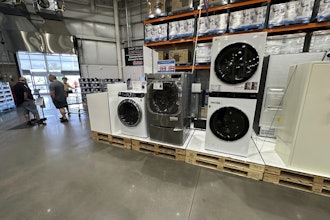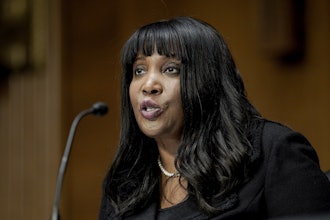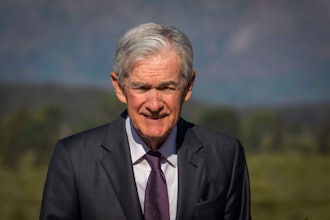
NEW YORK — The Conference Board Measure of CEO Confidence in collaboration with The Business Council rose sharply in the final month of Q3, after a moderate increase in the first month of Q3. The measure stands at 64, up from 45. (A reading above 50 points reflects more positive than negative responses.)
Capital spending plans improved, with 25 percent of CEOs anticipating increased spending over the next 12 months, up from only 15 percent earlier in the quarter. Moreover, 36 percent foresaw upward revisions in capital spending beyond the next 12 months. The employment picture was more mixed: Hiring plans cooled, and the potential for layoffs remained, with one-third of CEOs saying they anticipate reducing their workforce over the next 12 months. Slower economic growth and demand translated into smaller wage gains and potential pay cuts, with 21 percent of CEOs foreseeing no increase in their employees' wages and 5 percent saying they may reduce wages. However, expectations were that this is temporary, and wages will be on a much better trajectory beyond the next 12 months.
"CEOs entered Q4 significantly more upbeat than they were earlier this year," said Dana Peterson, Chief Economist of The Conference Board. "Notably, talent shortages eased in the wake of COVID-19 and nearly two-thirds of business leaders said they anticipated little, if any, problems with attracting qualified workers. Nonetheless, uncertainty around the pandemic—and its aftermath—remains a risk to Q4's newfound optimism as we enter 2021."
CEOs were asked to predict the pandemic's most important long-term impacts. More than 8 out of 10 named accelerating digital transformation among the key legacies of COVID-19. Additionally, 48 percent of CEOs cited increased demand for transparency in communication and information-sharing across the organization, while 45 percent felt the need to rethink current business models.
"CEOs across industries continue to adapt to COVID-19's new normal," said Roger W. Ferguson, Jr., Vice Chairman of The Business Council and Trustee of The Conference Board. "While Q4 saw a resurgence of optimism, leaders are also cognizant of—and planning for—what may be permanent shifts in consumer preferences and organizational expectations ahead."
Current Conditions
CEOs' assessment of general economic conditions improved significantly compared to the start of Q3:- 70 percent of CEOs reported economic conditions were better compared to six months ago, up from 8 percent
- Conversely, only 21 percent say conditions are worse, down from 90 percent
CEOs also expressed greater optimism about conditions in their own industries compared to earlier in Q3:
- 69 percent of CEOs said conditions in their industries were better compared to six months ago, up from 17 percent
- 20 percent of CEOs said conditions were worse, down from 76 percent
Future Conditions
By contrast, expectations about the short-term economic outlook have only moderately improved since the start of Q3:- 64 percent of CEOs expected economic conditions to improve over the next six months, up from 62 percent
- 15 percent expected conditions to worsen, down from 17 percent
CEOs' expectations regarding short-term prospects in their own industries have also turned more positive since the start of Q3:
- 65 percent of CEOs anticipated improved conditions in their industry, up from 60 percent
- 11 percent expected conditions to worsen, down from 17 percent
Capital Spending, Employment, Recruiting, and Wages
The survey also gauged CEOs' expectations about four key actions their companies plan on taking over the next 12 months.
- Capital Spending: 37 percent of CEOs expected to reduce their capital budgets in the year ahead, while 25 percent anticipated increasing spending, and 38 percent expected no revision
- Employment: 34 percent expected a net reduction in their workforce, and another 34 percent expected no change
- Hiring Qualified People: 62 percent of CEOs expected little to no problems finding qualified workers, while just 11 percent expected widespread talent shortages or real hiring problems across several areas
- Wages: 21 percent of CEOs foresaw no increase in their employees' wages and 5 percent said they may reduce wages
Source: CEO Confidence Survey, September 2020/The Conference BoardThe CEO Confidence survey was fielded from Sept. 17 through Sept. 30.
The Conference Board is the member-driven think tank that delivers trusted insights for what's ahead. Founded in 1916, we are a non-partisan, not-for-profit entity holding 501 (c) (3) tax-exempt status in the United States. www.conference-board.org






















